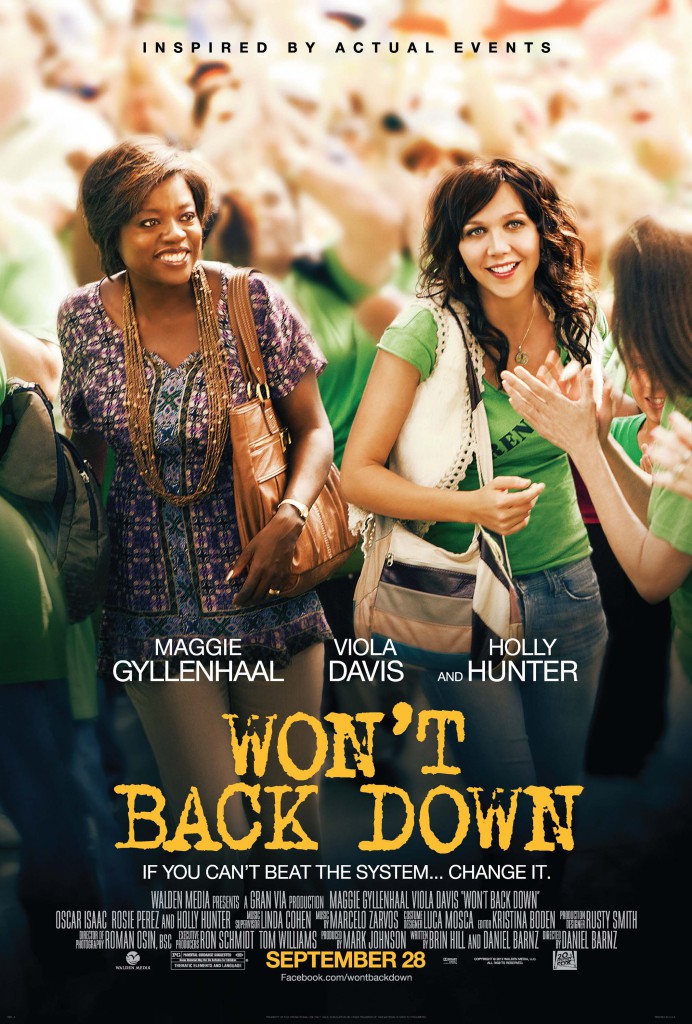Last week I was excited to tell you about the special screening and premiere of the new education reform film Won’t Back Down, that has created quite a stir of teachers union protests. (They should protest, writes National Review’s Rich Lowry, noting “the calculation of their self-interest was exactly right.”)
Not here in Colorado, though, at least as two of my Education Policy Center friends tell me. They went to Thursday screenings in two different locations. One of them, Ben DeGrow, wrote a review of the film for Ed News Colorado. For some reason, I don’t think he’ll mind if I quote quite liberally from his piece titled “Movie’s vital message: ‘We will not wait!’”:
The new feature film not only imports the heart-twisting The Lottery from Harlem, but also borrows Waiting for Superman’s line about prisons being planned based on dropout rates and reconstructs a major plot point from The Cartel’s account of a New Jersey charter school unfairly rejected over a technical error.
As Andy Rotherham points out in his Time Magazine review, Won’t Back Down may bring education reform into the mainstream in a way the documentaries that preceded it could not achieve. Not too long ago, it would have been hard to imagine a day when tenure laws, charter schools, Teach for America, school district bureaucracy and parent power all entered the lexicon of a Hollywood feature film. But here we are.
Here we are indeed. You know your message is really starting to reach the culture at large when it has so intertwined itself with the theme of a major Hollywood feature film. Those who have fought for school choice, school accountability, and parent power have reason to stand up and smile. Not the least because the stars of Won’t Back Down have been vocal in responding to the teachers union protests and defending the movie’s theme, while emphasizing they aren’t “anti-union.”
One more clip from DeGrow’s review to whet your appetite then:
Won’t Back Down thus doesn’t quite fit the script some have written for it. A great deal has been made of the movie being “anti-union.” Yet the chosen lens is too narrow. The entrenched political leadership, tedious bureaucrats, and self-serving Adams principal all join Teachers Association of Pennsylvania President Arthur Gould (Ned Eisenberg) as the film’s primary antagonists. Monopoly union power goes hand in hand with the grinding dysfunction of complacent, ineffectual bureaucracy. Though they often stand at odds, their leaders need each other to survive. A serious external challenge rallies them together.
The problem isn’t with labor unions per se, as much as with the vicious cycle of government unions entrenching their publicly-funded power through cumulative negotiated perks. In particular, teachers’ unions stand out because of the increasingly obvious shortcomings throughout the American K-12 education system and the opposition from NEA and AFT that crashes headlong into so many serious reform efforts. Especially, as the film depicts, in defending the jobs of teachers to the detriment of many struggling students and at great cost to taxpayers.
Go ahead and watch the movie. It ought to fire you up, and point out ways to get involved, because — simply put — we can’t afford to wait. And besides, now that education reform has hit the big screen, guess that makes people like me part of the “cool kids.”








